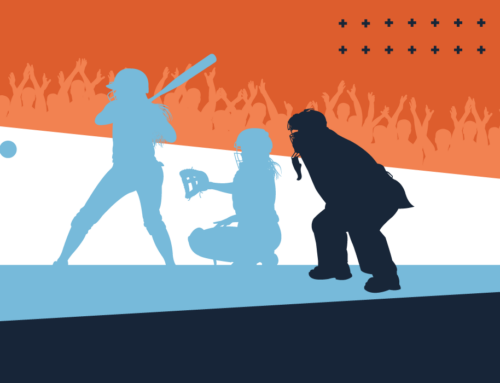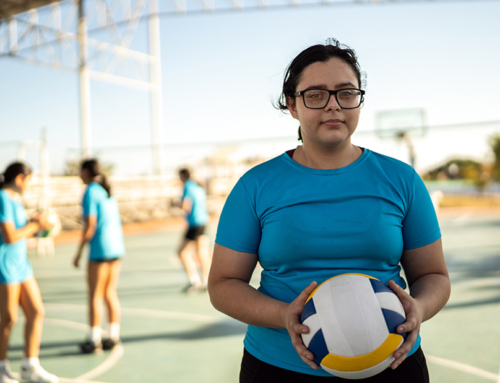A coach’s experience is essential on a multitude of levels. They are going to be a role model for your athlete for many years. Their teaching style needs to nurture and foster their experience; to formulate their potential that can be unlocked and evolved later in life. Learning new skills are essential, but the takeaway needs to optimize and integrate the athlete’s behavior, motivation, life, etc. It is an encompassing result. Being great and successful at sport is not the one who scores the most goals. It is how they apply all the qualitative aspects of sport in life.
Qualities Of A Good Youth Sports Coach
Help Athletes Learn
A coach’s greatest asset is helping the athletes learn. Many coaches teach young athletes and think they know how to learn, but they don’t. The process of learning requires understanding, repetition, patience, and practice. Not just show and do. By helping the athletes learn, they discover their strengths and weakness on and off the field to develop their potential.
Improve On The Field
It is essential to have a coach who can help an athlete improve physically and mentally on the field. The coach needs to have perseverance, patience, and the ability to motivate and inspire the athlete within.
Glass Half Full
A good youth sports coach is a person who has a ton of experience on and off the field. It is a person who does not sees the glass as half empty but half full. A coach is a person who has to see all the angles and not just have a cookie-cutter approach. Understanding this means that a coach provides positive and sustainable changes on the field because these experiences transfer into life, home, and school. Instituting these values as a child is vital because it helps structure the child’s behavior, mental and emotional states. The coach is an integral part of the athlete’s development. They will make a huge difference in an athlete’s life path.
Experience
It’s usually beneficial if a coach had played that sport when they were younger. It provides a good level of experience to pass on to the athletes. The coach probably went through all the positive and negatives, the ups and downs, the emotional roller coaster, and knew what it was like to win and lose and how to handle it. The coach should have an evolved and matured way of thinking. This will help adjust the athlete’s attitudes, perceptions, and personalities to be positive and exemplary for the sport and life.
Enjoy Their Job
A coach should see fun as a learning and building experience. Greatness is created by people enjoying what they do. When you enjoy what you do, you take more interest in the experience and do it more. Sports is about the development of life skills through the act of having fun. Fun builds self-confidence, independence, maturity, and decision-making ability. There is this misconception that you must get mad and hyped-up to be the best player. That learning certain qualities and having fun creates weakness. Not true. Greatness is achieved through fun and the opposite, being aggressive, hampers performance. Like Michael Jordan said, “Just play, have fun, and enjoy the game.” I would say Michael Jordan was really great!
Adapt
Each athlete has a different way of learning. As the coach, it is their job to understand what makes the athletes tick. They need an open coaching style with good observation skills to understand and enhance their players’ personalities, behavior, and skill level. Anyone can be trained. It just depends on how you present information. The athletes need to understand what the coach wants to teach them so they can learn correctly. This also helps the athlete trust the coach. And when they trust the coach, behaviors and personalities can change for the best.
Sportsmanship
Sportsmanship is a quality absolutely necessary in a coach. Sportsmanship is critical to developing the athlete mentally and emotionally. They do this by setting the example through their interaction with other teams, players, and coaches and communicating with parents. They need to show fair play, respect for other coaches and players, and shake hands after the game. The coach needs to give and show respect for it to be taught. He must show sportsmanship for his athletes to do the same. Young athletes are always observing.
Safety
Coaches teach players to play hard. But they also need to make sure that the players stay safe and monitor them physically, mentally, and emotionally. Physically, if an athlete is sick, injured, or tired, they need to consider the player and not the game’s score. Mentally and emotionally, if the athlete is having difficulties in life at home or school, he needs to understand how much the player can play. Or, if there are high emotions during the game, how to settle down the player. Winning is great but being unhealthy teaches the wrong lesson to play sport and in life.
Fun First
Winning and success come later in life. Therefore, the focus needs to be on fun. That is how young athletes learn, gain trust and develop their skills. They need to understand that challenges and adversity are not roadblocks but fun. It helps young athletes understand and build strategy and to overcome and be successful. That is most important because it leads to being better and improvement that contributes to the optimization of the athlete. Therefore, games should be used to teach and not to win. Challenges can be stressful. Use fun to teach athletes how to overcome challenges to minimize stress.
Work Together
Kids play sports to have fun, make friends, and be social. It is crucial to develop this, individually and as a team. Athletes need to know how to function and work together. Sports teaches many individual skills. One important thing for the coach is to show the player how to use and integrate their skills with the team.
Equal Playing Time
Athletes are trying to learn how to play the game and adapt and understand their skills and personality. So, the coach must allow everyone equal time to play. You have to present an equal opportunity for kids, or else they will think they are second when they play a game or in life.
As Magic Johnson said, “All kids need is a little help, a little hope, and someone who believes in them. ” This makes a big difference when you believe in a child. How your child learns to play sports will be a reflection of their future. The coach is the mediator of sport that transfers and ramifies into life.
Original article posted on stack.com



